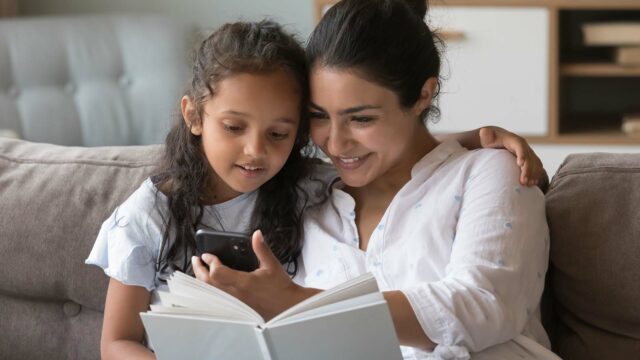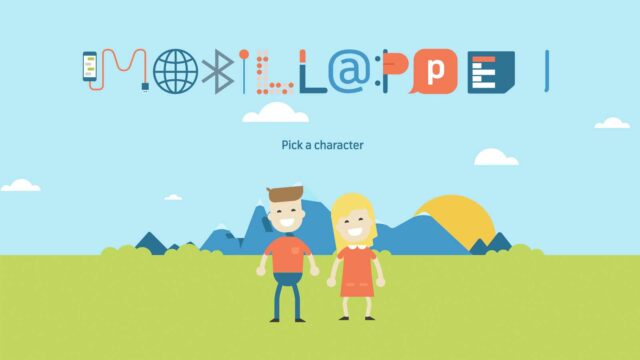
Digital influence can lead to conflict in immigrant families
As parents, we always hope that our children will do well at school and succeed later in their careers. However, the definition of success in our digital age has changed, careers are not only limited to old-fashioned professions. A YouTuber can now earn more than an engineer. A professional gamer is as well known as a football star.
Choose language in the Google-box below. Some translations may be flawed or inaccurate.

Immigrant parents, as I know them, expect their children to build a career in a traditional way, because something else often has an associated risk. The children don’t always think the same way, and this can sometimes cause a conflict in the family.
There’s more. Immigrant parents also expect that the children will not leave their parents’ own culture, and that may be another source of conflicts between parents and children.
Imposing of parents’ dream to children
Most of the immigrants leave their own countries with the hope that their children will have a better future. In the new country, they often don’t have the ability to have a luxury for themselves, nor can they meet all the requirements of the children. They always need to balance between what they have and what they expect. Therefore, they hope that the children will be better than themselves.
Good grades in school and so to a nice university education is a safe path to a safe job, parents think.
In the developing and least developed nations there is a large layering in society. Those who have jobs in the worst positions in the state sectors have not only good income but also much power and authority over others. Most parents in these countries are concerned about such a position for their children. For them, it’s something to brag about. So, they have a skewed view of some professions. Even when they’re immigrants to a new country, their dream doesn’t disappear necessarily. They try to push their children to have an education or profession that the children may not even like.
This expectation does not always give a good result. Children may feel a constant pressure to do better. They won’t like to be busy reading while their friends are playing video games or spending time on social media.
What’s more, children who have migrated to a new country after some years’ education back in their home country are required to learn a new language. It’s not easy for them to do well at school, and there is more likely to happen the opposite. In this situation, higher expectation for academic excellence will add up the burden the children already have.
The children may start dreaming of an untraditional career, maybe they hope to make money in the digital world as a youtuber, a blogger or a gamer.
Difference in cultural importance
It is a common desire for parents that their children should carry the cultural heritage of their families. For immigrant parents, it is a challenge because the children may not think it is as important as the parents do. In this virtual global village, children may find cultural heritage less important.
Children are also affected by global virtual trends about clothes, songs, haircuts, games and food.
A star from Youtube, Tiktok or Instagram can influence a lot. When friends and classmates follow these trends, immigrant children also want to follow them. But their parents may not like it, because to them, the trends may seem like a blow to the dream of preserving their own cultural heritage.
For immigrant children, it’s mostly the friends who shape their language and culture, not the parents. They often refuse to use the family language at home. On the contrary, they are putting pressure on parents to use the language in the immigrant country.
Some parents try to teach their children songs, poetry, etc. from their homeland in their own language, even if the children cannot even pronounce the words correctly. Parents enjoy the semi-correct pronunciation and brag about the children to preserve the cultural heritage. However, children may feel it as a pressure. They do not have a cultural connection to the customs as their parents do. It is also difficult for children to share the stories of such cultural heritage among their friends. Some children participate only for the sake of their parents. But not all children will think so.
Risk of a double life
Immigrant children may gradually lose interest in the food their parents consider as culturally important. Children can begin to enjoy what their friends at school eat.
There are also foods and drinks that the family’s religion may prohibit. Parents expect their children not to eat such food. But for the children, the food may be perceived as not having such a religious significance. When parents discover that their children are eating forbidden foods, there can be conflict with the children, especially in their teens.
Clothes can cause even greater conflicts, and this applies more to girls than to boys. The country from which the parents come may not have a teen culture at all. So, when an immigrant girl starts wearing relatively short and revealing dresses, the parents feel a kind of helplessness. It can simply be shocking to them. They may feel like a cultural intrusion into the family. If clothing is a religious issue, parents can even reprimand the girl. In such situations, some children begin to live a double life – they behave in one way in the circle of friends and in another way in the family. They start lying to both their parents and friends, but it is not good for the children’s physical and mental health.
Different views for boys and girls
It is not uncommon for immigrant parents to be more liberal with boys than with girls. Most parents do not mind if their son follows trends such as wearing ripped jeans or having a haircut that does not fit with the family culture. They may not even mind their son dating a girl from another culture. However, they may have trouble accepting that their daughter is dyeing her hair or starting to date.
However, boys may reject the whole family culture if they are pressured too hard to follow it. They can become a prey for the illusions of freedom from authority, thus joining destructive gangs. This can lead to poorer efforts at school as well as extreme conflict with the family.
Integration may not be a choice to parents
In western countries, there is a lot of talk about the integration of immigrants. For immigrant children, it means following the child or youth culture that prevails in the new country, no matter what it is. It turns out that integration promotes parent-child conflicts in immigrant families. According to the Journal of Ethnic and Migration Studies Volume 45, 2019 – Issue 9, a study among those of Moroccan and Turkish origin (15-45 years) in the Netherlands shows that they have somewhat more conflict with their parents compared to people without a migrant background. It is concluded that cultural and social integration can damage family relationships.
So, it can be said that integration is not always a wish of the parents. Almost every migrating family has a cultural gap between parents and children. Children learn the new country’s language, behavior, attitudes and values relatively quickly. As a result, immigrant parents and children are increasingly living in different cultural worlds.
Be a cheerleader to your children
Both integration and cultural heritage can be important for the children, but often they are completely opposite of each other and it is difficult for the children to balance everything. So, it is the parents who need to lower their expectations, and at the same time they should learn how Western societies value and reward individual freedom. They should also learn how the digital world works and how it affects children. And with all this in mind, parents should develop strategies based on motivation rather than control.
To do so, parents should be the children’s ‘cheerleader’, not a critic. They should remember that over-expectation, criticism or a comparison with other children can lead to anxiety and depression. In conversations with the children, the parents should ask questions in such a way that the children realize the problem and find solutions themselves.










